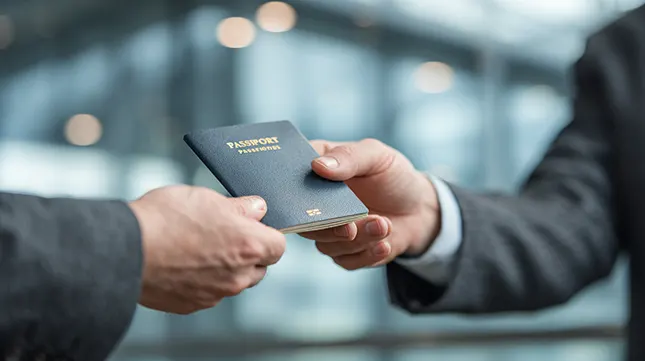Moving to UK from Australia – A Returning Guide

Are you thinking of moving to UK from Australia?
Returning to the UK after years of life Down Under is a mix of excitement and uncertainty.
For expats returning to the UK from Australia in 2025, the UK offers a familiar yet evolving landscape, rich in cultural heritage and new opportunities.
Reconnecting with loved ones, enjoying the ease of European travel, and even appreciating the distinct British seasons are just some of the rewards awaiting you.
Moving back allows for a rekindling of those quintessentially British experiences, from countryside hikes to cosy pub evenings with old friends.
However, the transition involves adjustments. From readapting to the climate to navigating the post-Brexit landscape and new 2025 visa rules, there is plenty to organise.
Whether you’re drawn back by a yearning for roots or practical reasons like schooling, the UK promises a welcoming return.
In our 2025 guide, we address the key concerns you might have ahead of your journey home.
1. Start Your Return Home Planning Early

Planning is key. Start organising your move at least 12 weeks in advance to manage winding up Australian assets and booking international shipping.
It is often tricky to know where to start when planning a big move overseas. Just as you did when you left for Australia, you need to prepare well in advance for your return.
While urgent family matters or work obligations might force a quick move, the more time you dedicate to planning, the smoother the process.
If you have been in Australia for several years, winding up assets like property, cars, and financial commitments (such as Australian credit cards or loans) takes considerable time.
Develop a budget and a timeline. International shipping from Australia generally takes 8–12 weeks, so booking your removal company early is vital.
Sort through your belongings, deciding what to take back and what to sell, while keeping UK customs regulations (Transfer of Residence relief) in mind to avoid unnecessary taxes.
2. Managing Reverse Culture Shock

Reverse culture shock is real. Be prepared for emotional adjustments as you reconnect with old friends and adapt to the UK climate.
It may surprise you to know that many returning Brits experience “reverse culture shock.” Don’t be too hard on yourself!
Even though the UK is your home country, both you and the place have changed.
We all look back with rose-coloured glasses, but the reality of a grey February day compared to a Sydney summer can be jarring.
You may also find you have different interests from the friends you left behind.
This is quite normal; you have experienced an enormous adventure and are undoubtedly not the same person anymore.
Start by reaching out to old friends for a coffee or a drink. Start small. In most cases, you will be enjoying their company again in no time.
Remember, coming home also offers a chance to make new friends if old connections have faded. “Slowly, slowly” is the order of the day here.

If you are returning with a non-British partner, ensure you meet the new 2025 minimum income requirements for UK family visas.
If you are a British citizen, your passport entitles you to live and work in the UK without restriction. However, if you are returning with a non-British spouse or partner, the rules have tightened significantly as of 2024/2025.
To bring a partner to the UK on a family visa, you must now meet a higher minimum income requirement (currently £29,000 as of early 2025, with potential planned increases).
You must prove you can support your family financially without relying on public funds.
Ensure you consult the UK Government’s official guidance on family visas well before you travel to ensure you meet the specific financial and documentary thresholds.
4. Adapting to the UK Cost of Living

Prepare for cost differences; while UK groceries may be cheaper than in Australia, eating out and energy bills can often be higher.
There are apparent differences in the cost of living between the two nations. While Australian groceries and rent can be significantly higher, you may find eating out and energy bills pricier in the UK.
Recent 2025 comparisons suggest that, overall, the cost of living in Australia remains higher than in the UK, particularly for supermarkets and rental prices in major cities like Sydney and Melbourne.
- Groceries: Generally cheaper in the UK (thanks to competition from supermarkets like Aldi, Lidl, and Tesco).
- Eating Out: Often more expensive in the UK.
- Rent: Highly variable. London remains comparable to Sydney, but moving to the North or Midlands can offer huge savings.
5. Understanding UK Property Sizes and Prices

UK homes are generally smaller than Australian properties. Research the market early, as average prices sit around £292,000 but vary by region.
If you are looking to buy, be prepared for a shift in scale. Australian properties generally have larger footprints and outdoor spaces than the UK’s compact housing.
As of late 2025, the UK property market has stabilised, with the average house price hovering around £292,000 – £300,000 (according to recent Land Registry and Halifax data).
However, prices vary wildly by region. A budget that buys a small flat in London could buy a detached family home in Yorkshire.
It is wise to research housing costs on Rightmove or Zoopla before you fly.
Many returnees opt for a short-term rental first (6 months) to re-familiarise themselves with neighbourhoods before committing to a purchase.
6. Enrolling Children in British Schools

School admission is not always automatic. Apply through your local authority well in advance, remembering the UK school year starts in September.
If you raised a family in Australia, bringing children back to the UK education system is a priority.
Remember that school years differ; the UK academic year runs from September to July, and children start formal schooling earlier (age 4-5) compared to Australia.
Admission is not always automatic based on postcode anymore.
You must apply through the Local Authority where you will be living. If your child is moving mid-year, you will need to contact the local council’s admissions team directly.
Encourage participation in extracurricular activities to help them settle.
For full details on the application process, visit the UK Government school admissions page.
7. Re-registering with the NHS

Returning residents can access free NHS healthcare. Register with a local GP as soon as you have proof of your new UK address.
One of the biggest perks of returning is the NHS. As a returning resident settling permanently, you are entitled to free healthcare at the point of use.
You should register with a local GP surgery as soon as you have proof of address. You do not need to be a taxpayer to access the NHS, but you must be “ordinarily resident.”
Note for family members: If your spouse or children are on a visa, they may need to pay the Immigration Health Surcharge (IHS) as part of their visa application to access NHS services.
8. Bringing Your Pets Home

To avoid quarantine, ensure your pets meet the UK’s strict entry rules, including microchipping, rabies vaccination, and tapeworm treatment.
Your furry friends are part of the family, but bringing them to the UK requires strict adherence to the rules to avoid a 4-month quarantine.
The UK does not generally require quarantine if you follow the Pet Travel Scheme.
Your pet must:
- Be microchipped.
- Have a valid rabies vaccination (at least 21 days before travel).
- Have a Great Britain pet health certificate.
- Dogs typically require a tapeworm treatment 24-120 hours before landing.
Always use a specialist pet relocation agent, as airlines often require this for flights from Australia.
Check the latest Gov.uk pet travel guidance for specifics.
9. Sorting Your Tax Residency
The UK tax year runs from 6th April to 5th April, unlike Australia’s July to June.
This mismatch can complicate things.
If you return partway through the year, you may qualify for “Split Year Treatment,” ensuring you only pay UK tax on income earned after you arrived.
However, this is complex. We strongly recommend speaking to a tax advisor who understands both jurisdictions to prevent double taxation.
You should also inform HMRC that you have returned by registering for Self Assessment (if self-employed) or checking your tax code if employed.
10. Opening a UK Bank Account

Opening a high-street account can be tricky without a permanent address; consider digital banks or international accounts before you land.
If you closed your UK accounts when you left, you are starting from scratch.
Opening a high-street bank account before you have a permanent address can be difficult due to strict anti-money laundering laws.
- Digital Banks: Providers like Monzo, Starling, or Revolut are often easier to set up and can sometimes be opened with a temporary address or before you land.
- International Accounts: Banks like HSBC or Barclays often allow you to open a UK account from Australia if you already bank with them.
11. Managing Your Australian Superannuation and UK Pension
Pensions are a critical long-term consideration.
If you worked in Australia, you likely have a Superannuation. Generally, you cannot access this until you reach retirement age (preservation age), even if you leave Australia permanently.
You may be able to transfer it to a UK pension if it is a QROPS (Qualifying Recognised Overseas Pension Scheme), but this is technically difficult and often involves high taxes.
Many expats choose to leave their Super in Australia to grow.
Conversely, check your UK National Insurance record. You might be able to pay voluntary Class 2 or Class 3 contributions to fill gaps from your years abroad, boosting your UK State Pension entitlement. Visit the International Pension Centre for advice.
Moving to UK from Australia with White & Company

Moving to the UK from Australia is a massive logistical undertaking. Choosing a trusted international removal company makes all the difference.
White & Company brings over 150 years of experience in global relocations.
As members of BAR, FIDI, and OMNI, we operate to the highest international standards.
We also offer secure storage if you aren’t ready to move into a permanent home immediately. Your possessions will be safe with us until you are settled.
For a smooth start to your journey home, contact White & Company today for a personalised quote. Let us handle the logistics so you can focus on starting your new chapter in the UK.

Max is a seasoned writer and blogger in the real estate and home moving sectors, as well as a knowledgeable source of information for expatriates living and working abroad. His detailed insights have helped thousands of people move and live abroad with greater simplicity and ease.
Posted in: News
Leave a Comment (0) ↓


